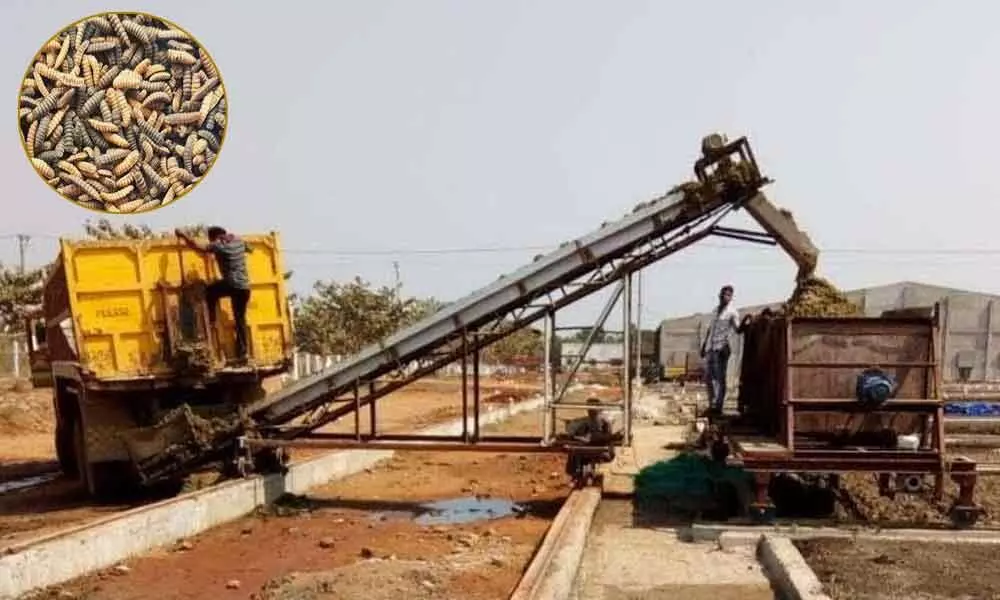Hyderabad: Shamshabad adopts 'Black Soldier Fly' method for organic compost

Black Soldier Fly (Inset Pic)
Processing time cut short to 15-20 minutes as against 45 days
Hyderabad: After successful handling of waste management system in its own facility at Kothwalguda, the Shamshabad municipality has moved a step ahead with a viable scientific method to make compost faster than earlier using 'Black Soldier Fly' (BSF) larvae method that propagate 'nothing goes to waste.'
Experts say that the BSF larvae method is a more effective way to turn waste into organic compost in considerably less time and can be used as a by-product to feed poultry, piggery and fisheries.
BSF also known with its scientific name Hermetia illucens, is a widespread fly of the family of Stratiomyidae (soldier flies). The larvae of this insect eat four times their weight in a day and feed on organic waste that is considered as a burden on our planet.
According to experts, soldier flies and larvae do not bite or transmit disease. The BSF larvae when used for animal feed would give more nutritious and amino acid composition than soya meal and fishmeal.
BSF can be raised on various organic waste materials like food, vegetable, fruit and slaughterhouse wastes along with poultry manure and piggery manure.
By introducing the 'Black Soldier Fly' larvae method in its well established and state-of-the-art waste management facility at Kotwalguda, the municipality will be able to cut short the processing time with a more refined result of highly rich organic compost.
Shamshabad commissioner Mohd Saber Ali said "In order to bring the idea into life, an open space of 150x100 feet (nearly 2,500 square yards) in 1.5 acres of waste management facility at Kothwalguda has been allocated for setting up required infrastructure. A concrete pavement has already been laid while the machines like waste trolleys and conveyor will be set up soon to make the unit fully operational. The whole BSF Larvae unit will be operational in a week."
"The technique of making compost out of wet-waste would significantly cut short the processing time to 15-20 days. Presently it takes almost 45 days to turn the wet waste into fully prepared compost as the whole process has to go through several rounds of manual interference before turning the waste into a fine variety of stimulant," he added.

















